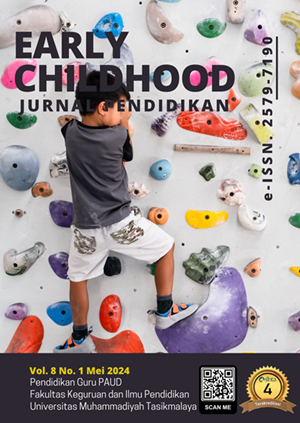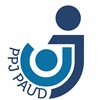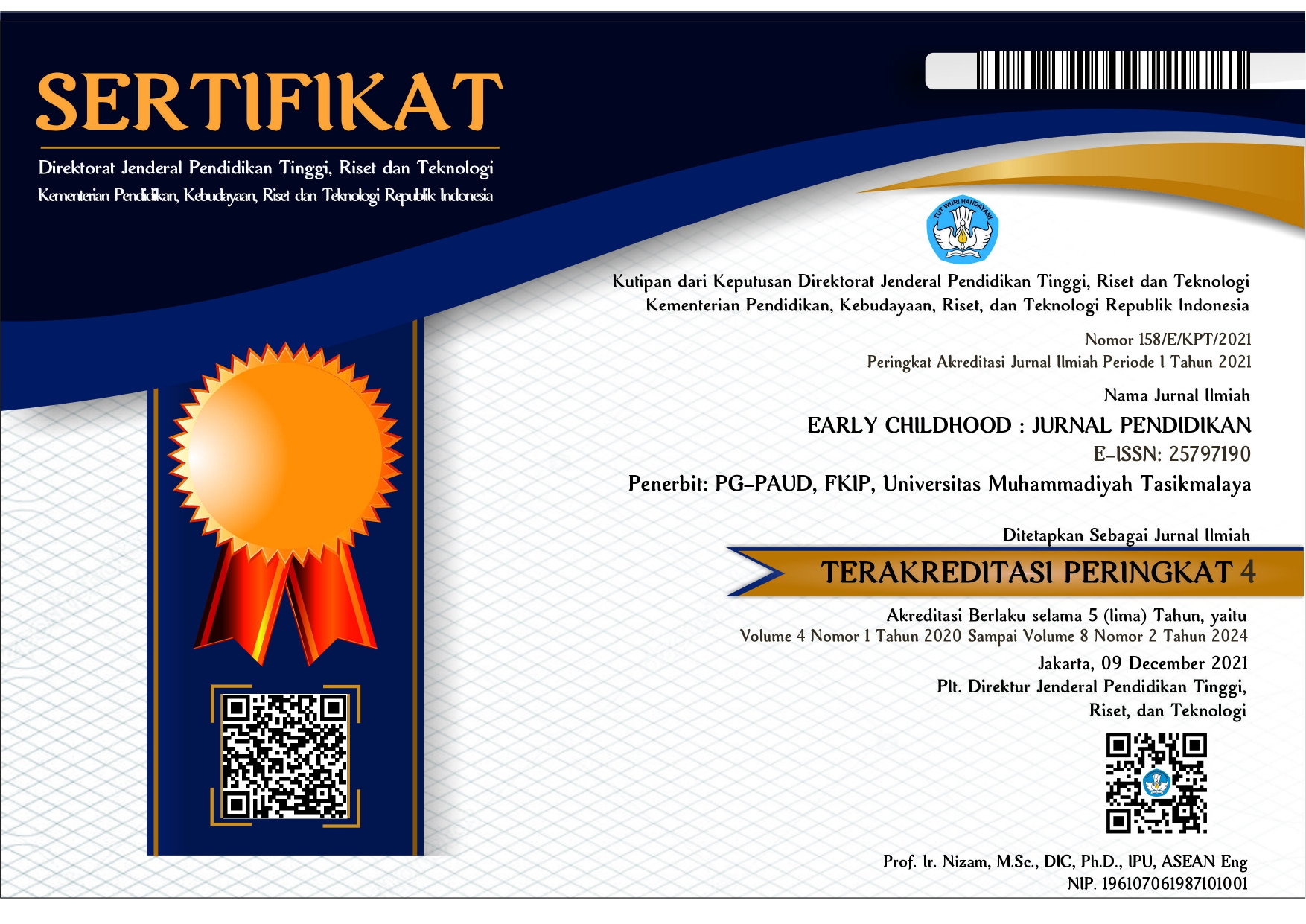PERAN ORANG TUA DALAM PENGEMBANGAN FISIK MOTORIK ANAK USIA DINI MELALUI PERMAINAN TRADISIONAL
DOI:
https://doi.org/10.35568/earlychildhood.v8i1.4582Abstract
This research highlights the crucial role of parents in guiding the early childhood physical motor development through traditional games. Children in this age range undergo a critical developmental period, and their physical motor skills during this phase significantly impact future cognitive and socio-emotional development. Parents, as primary agents in shaping a child's environment, bear a significant responsibility in creating an atmosphere conducive to this development. The study is grounded in child development theory, particularly in early childhood motor development. The research indicates that parental involvement in traditional games not only provides physical stimulation but also establishes a vital foundation for a child's social interaction and learning. The findings deepen our understanding of the added value of traditional games in the physical motor development of young children. Although the results are general, sustained support for parents in engaging children in traditional games is crucial. The relevance of traditional games lies in their ability to stimulate both gross and fine motor skills while enriching social, emotional, and creative aspects. Nevertheless, further research is needed to comprehend the complexity of these relationships more profoundly, with implications for raising awareness within society regarding the potential of traditional games as tools for child development.
Downloads

Downloads
Published
Issue
Section
License
Copyright Notice
Early Childhood Journal is an Open Access Journal. The authors who publish the manuscript in this journal agree to the following terms:
This work is licensed under a Creative Commons Attribution-NonCommercial-ShareAlike 4.0 International License.
Privacy Statement

The names and email addresses entered in this journal site will be used exclusively for the stated purposes of this journal and will not be made available for any other purpose or to any other party. Early Childhood allows the author(s) to hold the copyright and to retain publishing rights without restrictions.




